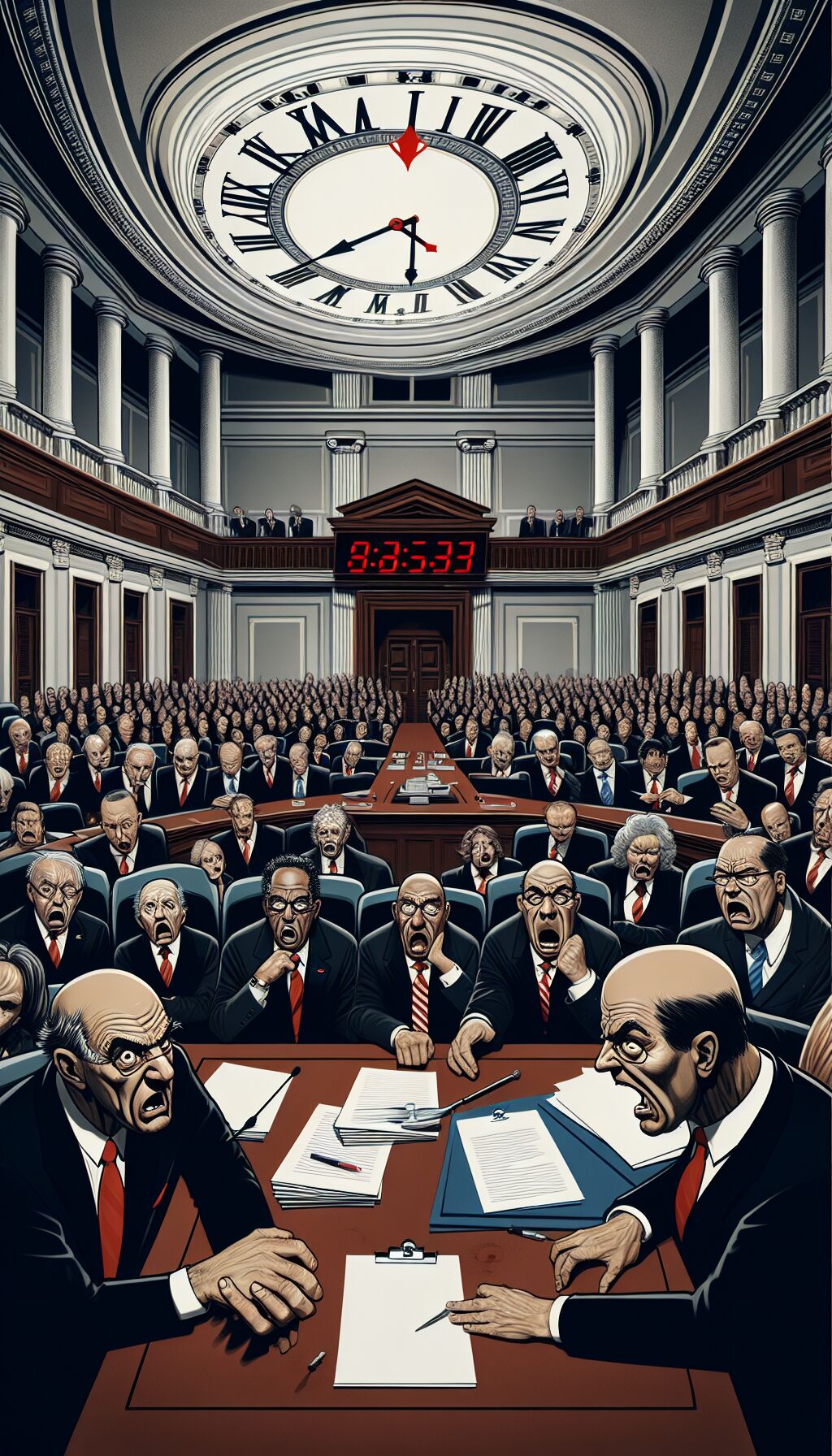House Republicans Face Deadline Challenges Over Trump Agenda
As the House Republicans prepare for a significant overhaul of conservative policies through the budget reconciliation process, they are likely to miss a critical deadline this week. This setback poses a major challenge to the GOP’s objectives of quickly advancing President Donald Trump’s agenda.
Initial Plans Hit Roadblocks
Speaker Mike Johnson from Louisiana previously indicated that House Republicans aimed to push their bill through committee during this week. However, tensions emerged late last week as hardline conservatives on the House Budget Committee expressed dissatisfaction with the proposed spending cuts set forth by GOP leaders. Sources have indicated this discontent is likely to impede progress on the budget resolution.
Resistance Among Party Members
“The budget resolution is almost certainly not going to move through committee this week,” remarked one source within the Budget Committee, speaking to Fox News Digital. The source elaborated, “What was presented by leadership at the retreat was so far off the mark – it could lead to even larger deficits.”
A senior aide within the House GOP echoed these sentiments, describing it as “extremely unlikely” for the resolution to advance in the current week.
Navigating an Expanding National Debt
The national debt continues to pose significant challenges as it surpasses the trillion mark, with the U.S. deficit currently exceeding 0 billion for the fiscal year. In light of this economic reality, House Republicans convened last week at Trump National Doral golf course and resort for a three-day retreat where committee chairs debated different avenues for pursuing spending cuts.
Republican Strategy Under Reconciliation
House and Senate Republicans are keen on leveraging their majorities to pass a variety of items from Trump’s agenda using the reconciliation process. This method lowers the threshold for Senate passage from 60 votes to a simple majority of 51 votes, thereby allowing Republicans to bypass Democratic opposition. However, to utilize this strategy, the House Budget Committee must pass a budget resolution that includes explicit instructions for other committees.
Conservative lawmakers have insisted that the final reconciliation product be either deficit-neutral or even deficit-reducing. Speaker Johnson assured reporters last week that these considerations were a priority.
Calls for More Aggressive Spending Cuts
Johnson stated that the guidelines for spending cuts would serve as a “floor” rather than a “ceiling,” offering lawmakers the flexibility needed to identify further savings. Nonetheless, some committee members, including Rep. Ralph Norman, a member of the House Freedom Caucus, expressed skepticism regarding these promises. Norman voiced concerns that the cuts achieved will not extend beyond the defined floors.
“I want to get it out of committee, have an up or down vote. But if you set that floor too low, that’s all that’s going to be achieved,” he remarked. He expressed a lack of confidence that leadership would exceed the baseline spending cuts proposed.
Proposals on the Table
Initially, Republican leadership offered a target of approximately 0 billion in spending cuts, which also included 5 billion in new expenditures. However, this plan did not account for interest payments. Sources later reported that the proposed cuts had been raised to around 0 billion, while new spending of roughly 0 billion was still earmarked for border security and defense.
Despite this upward revision, some lawmakers view these proposals as “woefully inadequate.” Norman has urged leadership to aim for starting point cuts between trillion to trillion, expressing that “anything less than that signals a lack of seriousness.”
The Risk of Political Fallout
There is significant pressure on House Republicans as they face potential threats to their unity. Several members of the Freedom Caucus hold substantial sway on the Budget Committee, and a failure to pass the budget resolution risks derailing the GOP’s goals altogether. This path is exceptionally important, especially since they anticipate minimal support from Democratic members.
However, hardline cuts may alienate Republicans in districts reliant on the funding at risk of elimination. Democrats have leveraged this concern to accuse Republicans of attempting to dismantle critical services such as Social Security and Medicare, despite Republican leadership repudiating such claims.
Looking Ahead to Legislative Goals
Rep. Ben Cline, another Freedom Caucus member, expressed cautious optimism, emphasizing the importance of initiating the process conservatively. He stated, “The Senate is not as interested in fiscal responsibility, so we recognize the need to establish parameters for authorizing committees from the very beginning.”
Speaker Johnson is keen to advance the bill through committee this week with aspirations of passing an initial version in the House by the end of February. Congressional leaders are eyeing a completed reconciliation bill by May.
Conclusion: Balancing Ambitions and Realities
In a discussion on “Fox & Friends,” Johnson remarked, “Republicans are working right now to negotiate what that looks like. We don’t want to blow a hole in the deficit by extending the Trump-era tax cuts, but we’re definitely going to get that extended. So we have to find those savings.” As House Republicans navigate these complex issues, the central theme remains: How to effectively align their ambitious agenda with the fiscal realities at hand.
